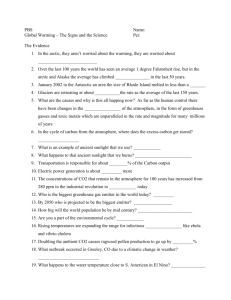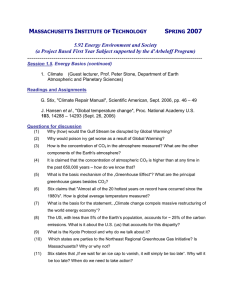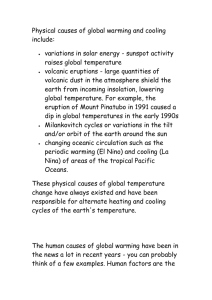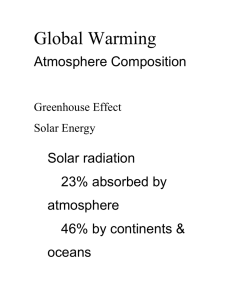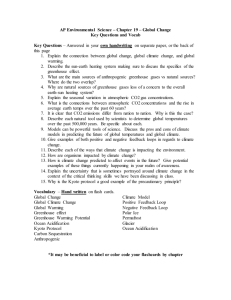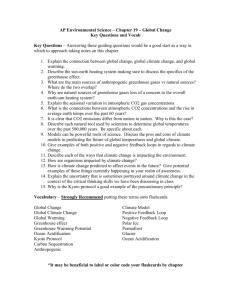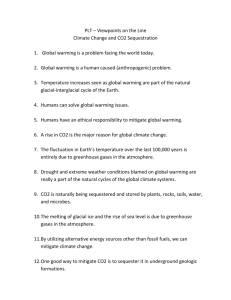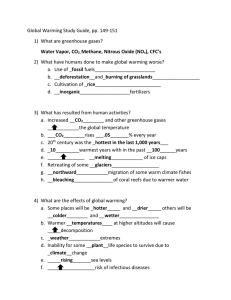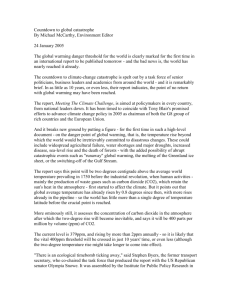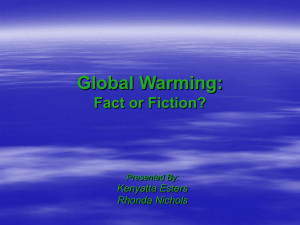ppt
advertisement
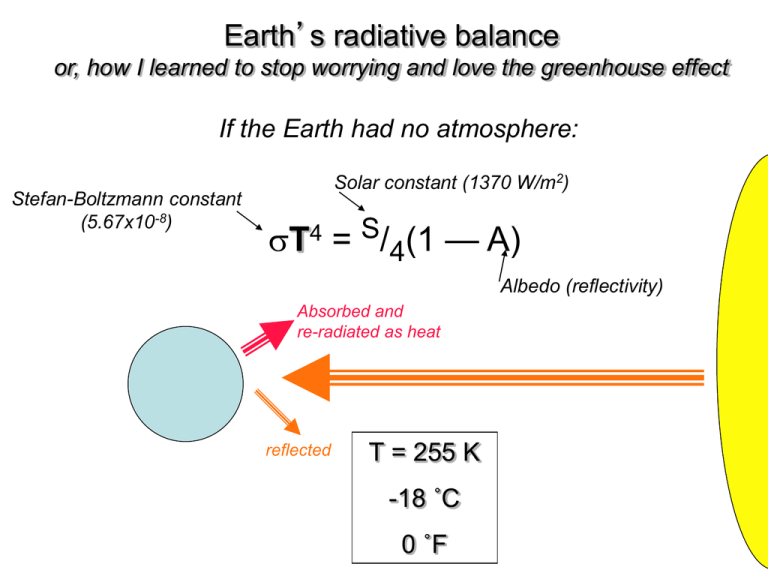
Earth’s radiative balance or, how I learned to stop worrying and love the greenhouse effect If the Earth had no atmosphere: Stefan-Boltzmann constant (5.67x10-8) Solar constant (1370 W/m2) T4 = S/4(1 — A) Albedo (reflectivity) Absorbed and re-radiated as heat reflected T = 255 K -18 ˚C 0 ˚F Actual surface 288 - 255 = 33 ˚ of ‘normal’ greenhouse warming No atmosphere Infra-red radiation Sunlight Air Global Temperatures for the last 150 years Temperature anomaly (˚C) (5-year running average; as of ~2005) 0.4 Al Gore invents the internet 0 World War II Civil war -0.4 Model T 1860 1900 1940 1980 Climate change in the age of Disco After Jones and Wigley, 1980 “ . . . a global deterioration of climate, by order of magnitude larger than any hitherto experienced by civilized mankind, is a very real possibility and indeed may be due very soon. ” The last ~10 years: another plateau resembling ~1950 Currently favored explanation of the plateaus is that these are periods when accumulated heat gets preferentially stored in ocean instead of atmosphere… Warming has a strong geographic bias (2000-2009 avg. vs. 1950-1980 mean) ±2.5 ˚C scale A long-suspected driving force — rise in CO2 Mauna Loa 1958-2004 AD Global average 1700-2000 AD The CO2 Greenhouse Effect What should physical principles lead me to expect of global warming? 33 ˚ of warming = 20˚ from H2Ov + 10 ˚ from CO2 + 3 ˚ from other things CO2 has risen 10’s of %, so T should have risen by a degree or more Complications • Solar ‘constant’ is a variable • Water-vapor feedback • Albedo Arrhenius, 1896 Doubling CO2 = 5-6 ˚C warming • Ice • Clouds • Aerosols and dust • Ground cover Cylon invasion happens here Sunspots and early 20th century temperatures Reid, 1999; by way of www.oar.noaa.gov So what factor is to blame for 20th century T rise? Wrong question — lots of things are to ‘blame’ but some are more important than others, and at different times

